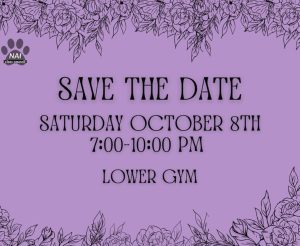Good and Bad Habits: Their Developments and Impacts
November 19, 2021
Think about something that you struggle with daily. You work on this annoyance or negative tendency every day, and you progressively get better at it. You just formed a good habit – but don’t get ahead of yourself because not all habits you create are beneficial.
People every day all around the world have various habits and schedules that run parallel to what works for the individual. All regular people – lazy or on a tight schedule – pick up habits from just doing normal things on a repetitive basis.
Why Good Habits are Easier to Create
Good habits are hard to create because of the sudden change in routine. According to the article, “Why Forming a New Good Habit Is Easier Than Breaking a Bad One” from Lifehack.org, good habits “…trigger the release of dopamine, a feel-good chemical in the brain. When your brain learns that a particular action makes you feel good, it compels you to repeat it in the future…”.
Development of Good Habits
This effect of the feel-good chemical causes people frequently to give up on their set goals, but some people have strategies that help them achieve and successfully create habits. Sophomore Addie Lee shares how she forms her habits. She says, “looking at things from different angles or expectations” helps her stay focused. Other people would normally give up if they can’t figure something out, but if we expect a different outcome, maybe a more realistic approach, we will progressively improve our habits.
Looking at things from a different perspective is only one way to approach creating good habits. Other students that attend NAI rely on time management and organization to help form valuable habits. Freshman Emily Sobehart uses time management: “…by working on making a schedule for myself and learning about my work style…”.
In addition, having a positive attitude greatly helps in implementing new routines. “Trying my best and not giving up on things I don’t succeed [in] the first time” is an important part of the process for freshman Satrio Kasuma.
Developments of Bad Habits
On the contrary to the development of these so-called good habits, we have the development of bad habits. Bad habits are known to come naturally because our brain turns our daily routines into habits, so we end up, in the long run, performing them without much thought.
When asked, a majority of students would say they form bad schooling habits, such as putting off important things, because of distractions. “Just sitting around led to me going on my phone for entertainment”, says sophomore Ali Pasquale. Besides procrastination and distraction, bad habits normally just come naturally to people.
“(It might mean) paying less and less attention to things I didn’t realize I needed to be paying attention to,” says Sobehart. This proves that actions do come naturally to people and affect them on a daily basis. Sobehart not paying attention constantly affects the outcome of other important things in her life.
And she is not alone. A lot of people deal with very common bad habits. Some consist of spending a majority of time on their phones, forgetting things, and procrastinating on work.
Embrace or Change?
Different people have different opinions on whether to embrace or change their habits. Their approaches on the topic are all different, but it works for them. Sophomore Jayna Cole says that “Helpful habits help maintain hygiene, social stability, and overall well-being are important to embrace…”.
She makes the point that helpful habits that positively affect your life should be embraced. Freshman Lauren Keyser says “…embrace them because if you try to change them it could change you.” Keyser makes a good point that truly affects everyone. Being yourself also includes being confident in your habits, good or bad.
On the other hand, some students say that negative habits should be stopped because they could be harmful and bring consequences in the long run. Sobehart says that it “…allows you to develop a sense of accountability for your actions.” This shows that negative habits deeply affect our decisions, and if they are stopped before they flourish in our lives we could avoid other obstacles in our lives.
Altogether, in a world of distractions, find something or some way that will positively affect your life. Whether that means you get rid of that one bothersome thing that annoys you every day or if you build up a habit that will conclusively improve efficiency.













